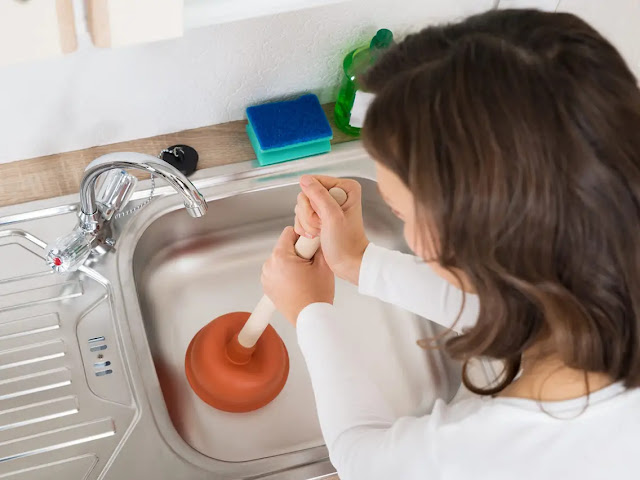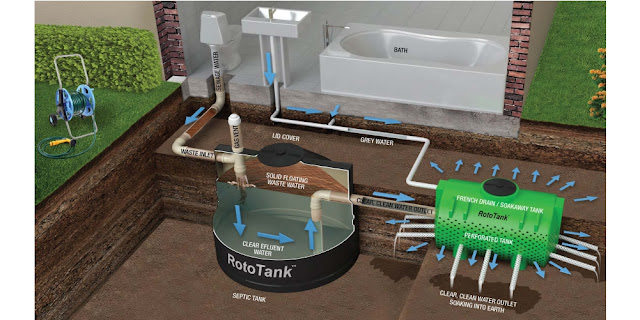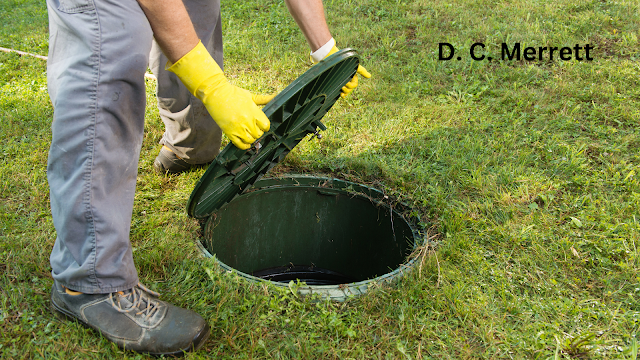What is the quickest way to unblock a drain?
The Quickest Ways to Unblock a Drain: Tips and Techniques
A blocked drain can be a major inconvenience, causing slow drainage, unpleasant odors, and, in some cases, water damage. When you encounter a clogged drain, you'll want to resolve the issue as quickly as possible. In this article, we will explore the quickest ways to unblock a drain, from DIY methods to professional solutions, to help you get your plumbing back in working order in no time.
Boiling Water
One of the simplest and quickest methods to unclog a drain is by using boiling water. This method works well for minor blockages caused by grease, soap scum, or food residue.
Boil a pot of water.
Carefully pour the boiling water directly down the clogged drain.
Let it sit for a few minutes to allow the hot water to melt away the blockage.
Run hot water from the faucet to check if the drain is now clear.
This method is effective for minor blockages but may not work for more stubborn clogs or blockages caused by solid objects.
Plunger
A plunger is a versatile and effective tool for unclogging drains, especially when dealing with blockages in sinks or toilets.
To use a plunger:
Fill the sink or toilet with enough water to cover the plunger.
Position the plunger over the drain opening.
Press down firmly and create a tight seal around the drain.
Push and pull the plunger vigorously, creating suction to dislodge the blockage.
Repeat the process a few times until the water starts to drain.
Baking Soda and Vinegar
Baking soda and vinegar are a natural and eco-friendly combination that can help unclog drains and remove odors. This method is effective for minor clogs.
Pour about 1/2 cup of baking soda down the clogged drain.
Follow it with 1/2 cup of vinegar.
Cover the drain with a plug or a cloth to contain the fizzing reaction.
Allow the mixture to sit for 15-30 minutes.
Flush the drain with hot water to clear away the blockage.
This method can be repeated if necessary and is safe for both kitchen and bathroom drains.
Drain Snake
A drain snake, also known as a plumber's snake or auger, is a handy tool for removing more stubborn clogs. It's effective for clearing blockages caused by hair, paper, or foreign objects.
To use a drain snake:
Insert the snake into the drain opening.
Rotate the handle clockwise while gently pushing the snake further into the drain.
When you encounter resistance, this is likely the blockage. Rotate the snake to break it up or pull it out if possible.
Continue to work the drain snake until you no longer encounter resistance or feel the blockage has been removed.
Chemical Drain Cleaners
Chemical drain cleaners, available in most hardware and home improvement stores, can quickly dissolve clogs caused by grease, soap scum, and hair. It's essential to use these products with care and follow the manufacturer's instructions.
To use chemical drain cleaners:
Carefully read and follow the product's instructions and safety precautions.
Pour the recommended amount of the chemical drain cleaner down the clogged drain.
Allow it to sit for the specified duration, typically 15-30 minutes.
Flush the drain with hot water to clear away the dissolved blockage.
High-Pressure Water Jet
If you have access to a high-pressure water jet, it can be an efficient and quick way to clear stubborn clogs. A high-pressure water jet uses a forceful stream of water to break up and wash away blockages.
To use a high-pressure water jet:
Insert the nozzle into the drain opening.
Turn on the water and apply high-pressure bursts to force the blockage through the pipe.
Gradually work the water jet through the clogged area until the drain flows freely.
Professional Plumbing Services
In situations where DIY methods fail to clear the blockage or when dealing with severe clogs, it's often best to seek professional plumbing services. Plumbers have the experience and equipment to quickly and effectively diagnose and address blockages.
Professional plumbing services can include:
Video inspection: Plumbers can use a small camera to inspect the interior of your pipes, identifying the exact location and nature of the blockage.
Drain snaking: Professionals have access to powerful drain snakes that can handle more challenging clogs.
Hydro jetting: High-pressure water jetting equipment can be used by plumbers to dislodge and remove blockages effectively.
The Quickest Way Depends on the Blockage
The quickest way to unblock a drain depends on the nature and severity of the blockage. For minor clogs caused by organic matter or soap scum, methods like boiling water, baking soda and vinegar, or a plunger can often provide a swift solution.
However, for more stubborn clogs, such as those caused by hair, solid objects, or mineral deposits, the use of a drain snake, high-pressure water jet, or professional plumbing services may be the quickest and most effective way to resolve the issue.
It's important to assess the situation and choose the method that matches the specific characteristics of the blockage for the fastest and most efficient result.
Preventive Measures for Avoiding Clogs
To minimize the occurrence of drain clogs and reduce the need for unclogging methods, consider implementing the following preventive measures:
Regularly clean sink and shower drains by removing hair and debris.
Use drain covers or strainers to catch debris before it enters the drain.
Avoid disposing of non-biodegradable items down the toilet or sink.
Be cautious about what goes down your kitchen sink, especially in regard to grease and fats.
Conduct routine plumbing maintenance and inspections to identify potential issues before they become major blockages.
Conclusion
Unblocking a drain can be a quick and straightforward process when you choose the right method based on the type and severity of the blockage. For minor clogs, simple DIY solutions like boiling water, baking soda and vinegar, or a plunger can provide speedy results. However, for more stubborn clogs, it's advisable to use a drain snake, high-pressure water jet, or professional plumbing services to clear the blockage efficiently.
By assessing the situation and selecting the most appropriate method, you can quickly restore the functionality of your plumbing system and minimize inconvenience. Moreover, practicing preventive measures can help reduce the likelihood of future clogs, ensuring your drains remain free-flowing and trouble-free.




Comments
Post a Comment